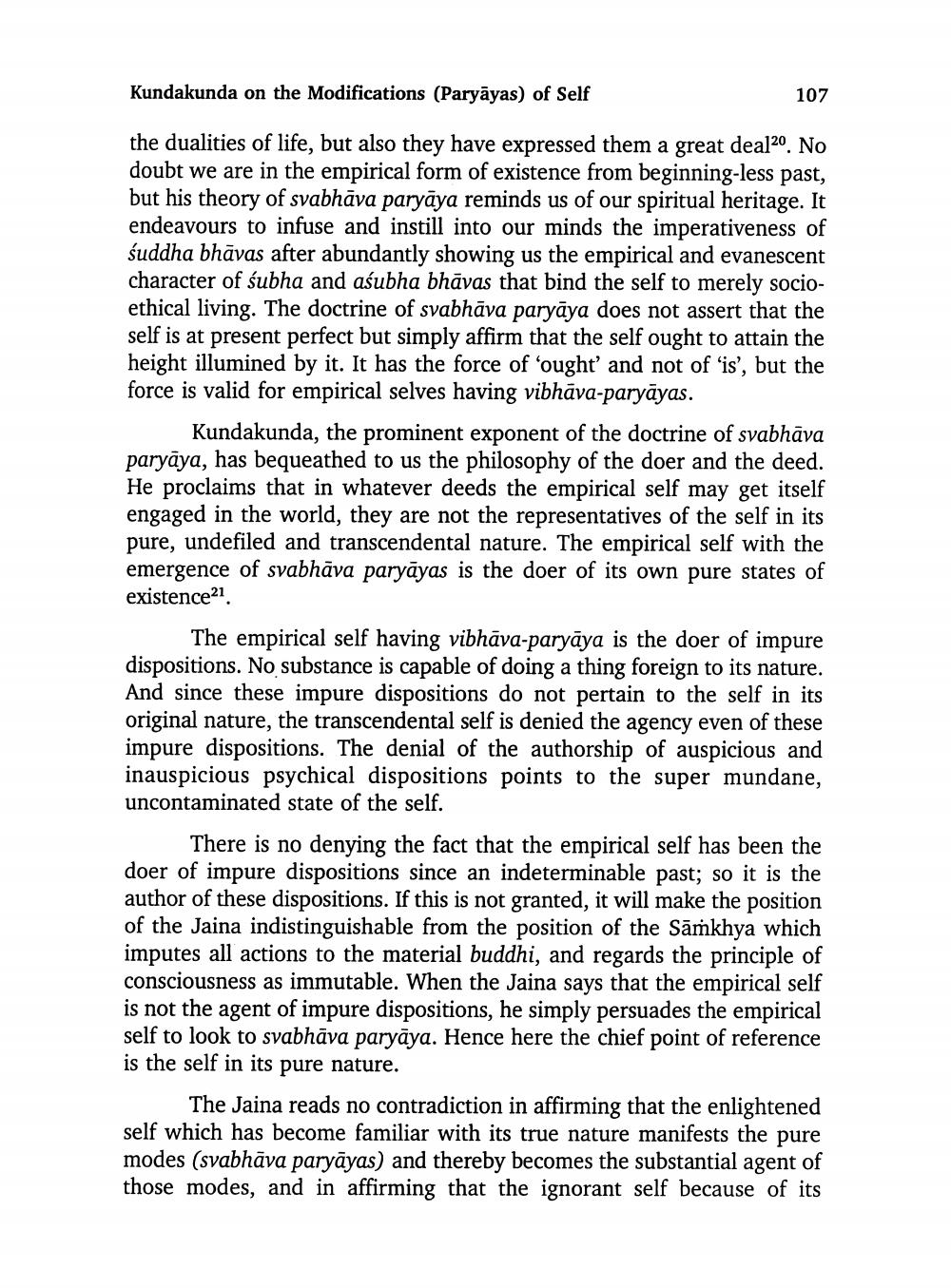________________ Kundakunda on the Modifications (Paryayas) of Self 107 the dualities of life, but also they have expressed them a great deal20. No doubt we are in the empirical form of existence from beginning-less past, but his theory of svabhava paryaya reminds us of our spiritual heritage. It endeavours to infuse and instill into our minds the imperativeness of suddha bhavas after abundantly showing us the empirical and evanescent character of subha and asubha bhavas that bind the self to merely socioethical living. The doctrine of svabhava paryaya does not assert that the self is at present perfect but simply affirm that the self ought to attain the height illumined by it. It has the force of 'ought' and not of 'is', but the force is valid for empirical selves having vibhava-paryayas. Kundakunda, the prominent exponent of the doctrine of svabhava paryaya, has bequeathed to us the philosophy of the doer and the deed. He proclaims that in whatever deeds the empirical self may get itself engaged in the world, they are not the representatives of the self in its pure, undefiled and transcendental nature. The empirical self with the emergence of svabhava paryayas is the doer of its own pure states of existence21 The empirical self having vibhava-paryaya is the doer of impure dispositions. No substance is capable of doing a thing foreign to its nature. And since these impure dispositions do not pertain to the self in its original nature, the transcendental self is denied the agency even of these impure dispositions. The denial of the authorship of auspicious and inauspicious psychical dispositions points to the super mundane, uncontaminated state of the self. There is no denying the fact that the empirical self has been the doer of impure dispositions since an indeterminable past; so it is the author of these dispositions. If this is not granted, it will make the position of the Jaina indistinguishable from the position of the Samkhya which imputes all actions to the material buddhi, and regards the principle of consciousness as immutable. When the Jaina says that the empirical self is not the agent of impure dispositions, he simply persuades the empirical self to look to svabhava paryaya. Hence here the chief point of reference is the self in its pure nature. The Jaina reads no contradiction in affirming that the enlightened self which has become familiar with its true nature manifests the pure modes (svabhava paryayas) and thereby becomes the substantial agent of those modes, and in affirming that the ignorant self because of its




